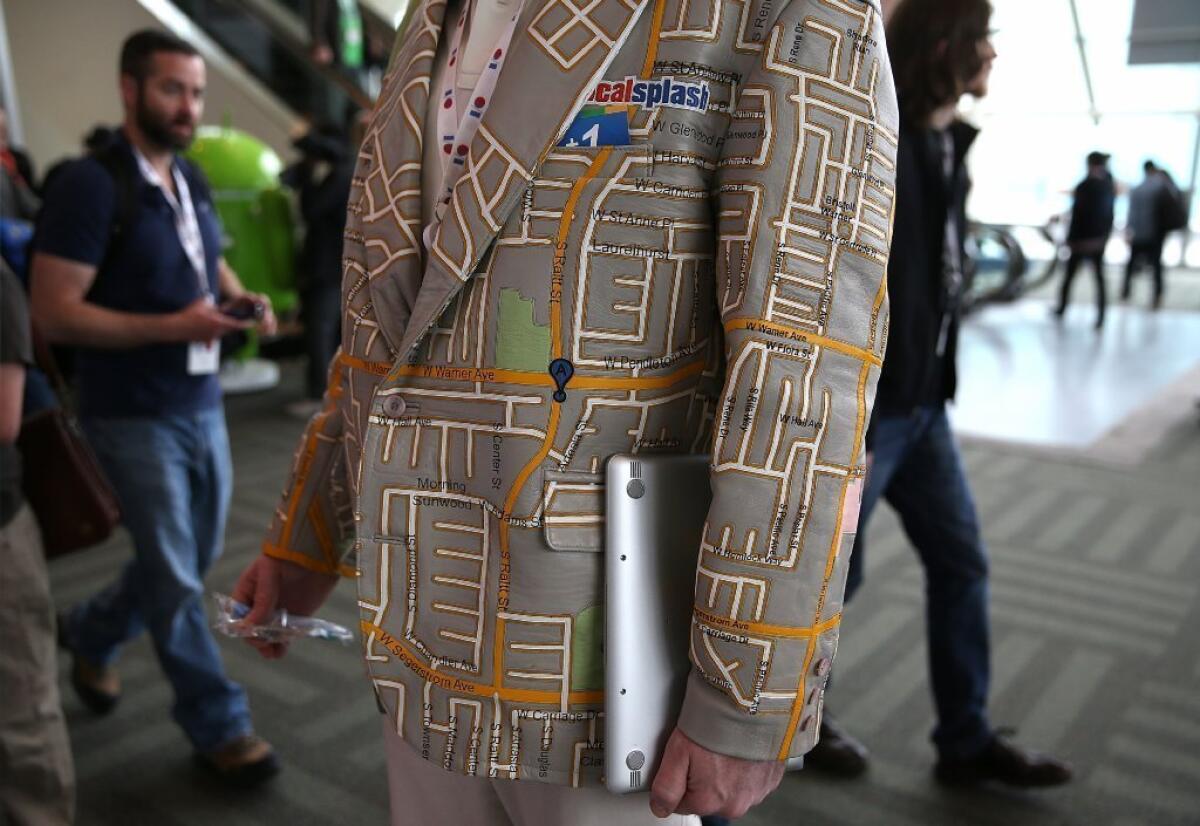Google aims to be your personal cartographer to extend maps lead

SAN FRANCISCO -- With its three-dimensional satellite imagery of the planet, its block-by-block detail of neighborhoods and its ubiquitous driving directions, Google is already the king of online cartography.
Now it’s looking to lengthen its significant lead by making a bid to be your personal cartographer: creating online maps that show landmarks, restaurants and other details tailored to your habits, interests and plans.
A sweeping redesign of Google Maps –- the most major changes to the product since its launch eight years ago, the tech giant says –- is elevating the competition for how people navigate the world and where they stop along the way.
Maps have become one of the most hotly contested areas for major Silicon Valley companies with the explosion of mobile devices. And it’s an area in which Google has a huge head start.
“Obviously Google has a very impressive infrastructure including Street View and multiple data sources that it has developed over a period of years. This is a very major effort that has been ongoing and Google has benefited from all of this work they have done,” said Greg Sterling, analyst with Opus Research.
The new version of Maps, which you can preview, is not yet available on mobile. But it’s clear where Google is going with it.
The technology giant wants to be along for the ride as you plot the fastest way to get across town or discover a new spot to have dinner.
In September when Apple released a software update for the iPhone that replaced Google -- a reliable fixture on the phone since 2007 -- with its own mapping product, Google’s dominance in maps was questioned for the first time. In November, Nokia looked to take advantage of criticism of Apple maps by releasing its own maps app for iOS and Android. Even Facebook wants to get in on maps because it’s such a powerful way to get a big piece of mobile commerce.
“Suddenly the mapping space looked for the first time to be much more competitive,” Sterling said. “Google responded to that in part by building the natural evolution of maps, but also to respond to competition and stay ahead of the game.”
Google’s gravitational pull is powerful. With the new version of Maps, the map becomes the go-to resource, offering information and images on local restaurants, hot spots and cultural attractions. If logged in to Google, it draws on its knowledge of you and your use of its many services including search, and makes recommendations based on your habits and preferences, and those of your Google+ friends. As a result, the map becomes personalized to you and looks different than any other map. It also changes in real time. If you click on a museum, it will pop up other museums in the vicinity. It also highlights the roads near the museum to make it easier to get there.
It’s a very subjective look at the world. No two maps will look alike, Jonah Jones, lead designer for the new Google Maps, said in an interview last week. Essentially you can draw your own world.
“It’s like hiring a cartographer to design the perfect map for you,” Jones said.
That may delight some. But it could also raise privacy fears for those people already unsettled by Google’s mission to be with you wherever you are and whatever you do. The new version means Google will know even more about you. To avoid that, Google says people can use the maps product without logging in. (But, of course, that does not mean Google isn’t still collecting information about you.) Google said it is using the preview period to get feedback from users.
The new version of Maps has other nifty features such as blending all of the images and information that Google collectively has about a place, even the interior 360-degree views of a restaurant or bar and three-dimensional satellite images from Google Earth, the digital model of the planet, without any plug-in or download.
Google Chief Executive Larry Page, who showed off the new product at his company’s annual developer conference in San Francisco, said the sleek design and integration of Google products is the driving force behind Google. Many of the announcements on Wednesday showed off that unified ecosystem of products, the goal of which is to give people the right answers to their questions, regardless of what service or device they are using.
“Every time you use one Google product, it reminds you of other Google products,” Sterling said.
Google is using that ecosystem to take on Apple and other competitors. It increased the free photo storage on Google+ and introduced a new feature called “auto awesome” that creates a GIF out of a series of photographs or creates a single photo from multiple photos so everyone is smiling. A new feature in Google Now, a competitor to Apple’s Siri, reminds people to buy milk when they are at the grocery store.
“Each individual feature didn’t seem to be particularly groundbreaking. The gestalt was the thing,” Sterling said. “It was the complete package.”
ALSO:
Google to roll out ‘conversational’ way to search Web
Google’s new Gmail feature lets users send money by email
On eve of Google developers conference, company is ‘hot again’
More to Read
Inside the business of entertainment
The Wide Shot brings you news, analysis and insights on everything from streaming wars to production — and what it all means for the future.
You may occasionally receive promotional content from the Los Angeles Times.









